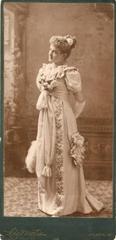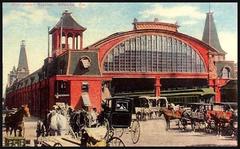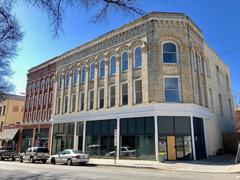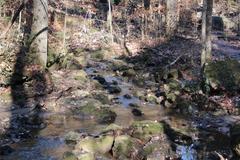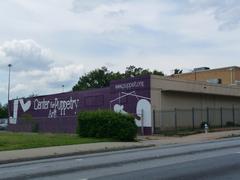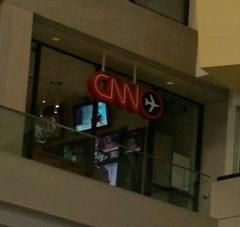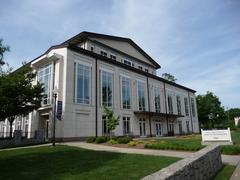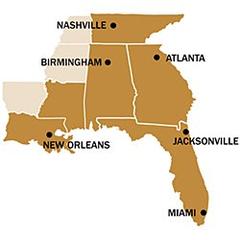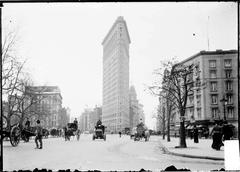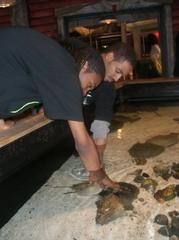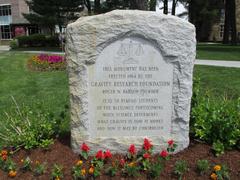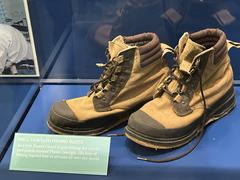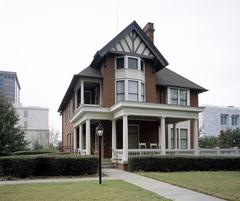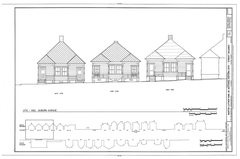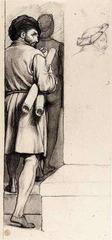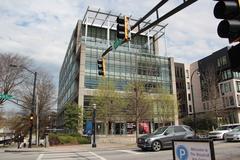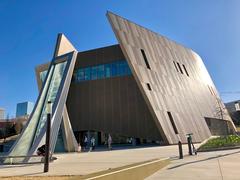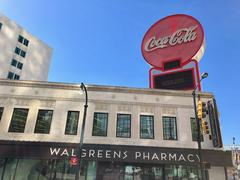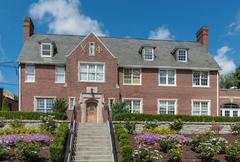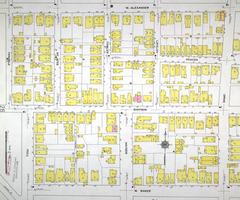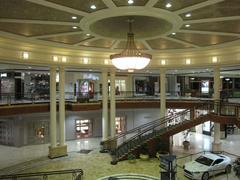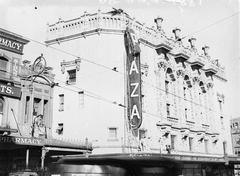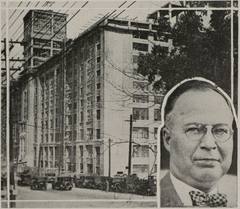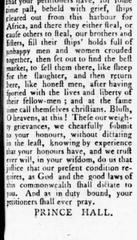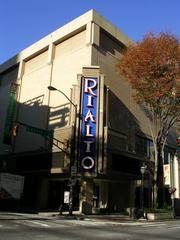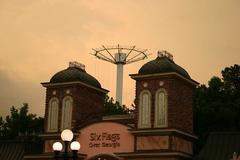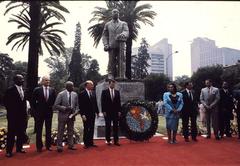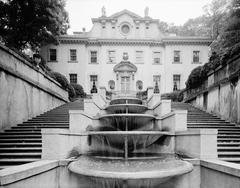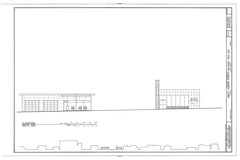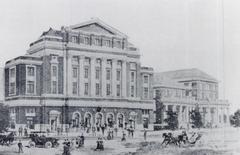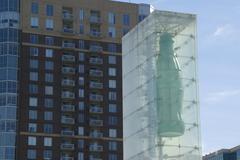Utoy Cemetery: Visiting Hours, Tickets, and Historical Significance in Atlanta
Date: 03/07/2025
Introduction
Nestled in Atlanta’s historic southwest neighborhoods, Utoy Cemetery stands as one of the city’s oldest and most culturally significant burial grounds. Established in the early 19th century alongside the Utoy Primitive Baptist Church, this cemetery offers a unique window into Atlanta’s rural origins, its diverse community heritage, and pivotal moments in American history, including the Civil War. As the final resting place for early settlers, military veterans from the Revolutionary War through Vietnam, and Atlanta’s first physician, Dr. Joshua Gilbert, Utoy Cemetery is both a place of memory and education. Its landscape, marked by historic gravestones and a preserved Civil War trench, invites visitors to reflect on the city’s past and the ongoing efforts to preserve it (Georgia Historical Society; Utoy Cemetery Association; Secret Atlanta).
Table of Contents
- Historical Overview
- Architectural and Landscape Features
- Visiting Utoy Cemetery
- FAQs
- Conclusion
- Sources and Further Reading
Historical Overview
Early Foundations and Establishment
Utoy Cemetery’s origins are closely tied to the Utoy Primitive Baptist Church, founded on August 15, 1824, making it the oldest Baptist congregation in present-day Fulton County (Georgia Historical Society). The church originally met in a log structure west of the current site, relocating to its present location by 1828. The adjacent cemetery began serving the community around that time, receiving the remains of early settlers and church members, and offering a glimpse into Atlanta’s rural beginnings (Secret Atlanta; To Die for Images).
The land is believed to have been donated by a military veteran of the War of 1812, who is also buried here (Saportareport). The church’s congregation included both white settlers and, later, formerly enslaved African Americans, reflecting the evolving demographics of southwest Atlanta.
Civil War and the Battle of Utoy Creek
Utoy Cemetery’s most profound historical significance is its direct connection to the Civil War. During the Atlanta Campaign in August 1864, the nearby Battle of Utoy Creek saw Union and Confederate forces clash, with the church itself serving as a field hospital for wounded soldiers from both sides. The cemetery preserves a section of the original trench from the battle, providing a rare tangible link to Atlanta’s wartime history (Secret Atlanta; Saportareport).
The battle temporarily halted General Sherman’s advance and delayed his March to the Sea. The grounds are believed to contain the graves of soldiers from this conflict, both marked and unmarked, and the site is a frequent stop on Civil War history tours.
Notable Burials and Community Figures
Utoy Cemetery is the final resting place for a remarkable cross-section of Atlanta’s early residents, including:
- Dr. Joshua Gilbert: Atlanta’s first physician, who served the city’s residents and treated soldiers during the Civil War.
- Veterans of every major American conflict: From the Revolutionary War, War of 1812, Civil War, and beyond, the cemetery chronicles the military legacy of Atlanta families (Saportareport; Utoy Cemetery Association).
- African American slaves and freedmen: Reflecting Atlanta’s antebellum and postbellum history (Atlanta Parent).
Gravestones range from simple fieldstones to ornate Victorian markers, offering insight into burial customs and the people who shaped Atlanta.
African American Heritage and Unmarked Graves
A significant aspect of Utoy Cemetery’s heritage lies in its connection to Atlanta’s African American community. Many of the city’s earliest Black residents, including formerly enslaved individuals, are buried here—though many graves are unmarked. The Utoy Cemetery Association is actively fundraising for ground-penetrating radar surveys to locate and honor these graves, underscoring the site’s ongoing role in reconciliation and remembrance (Utoy Cemetery Association).
Preservation Efforts and Community Engagement
By the late 20th century, Utoy Cemetery had fallen into neglect. The founding of the Utoy Cemetery Association in 1984 marked a turning point, with restoration efforts leading to the cemetery’s listing on the Georgia Register of Historic Places (2011) and the National Register of Historic Places (2015) (To Die for Images). The Association continues to organize community clean-ups, educational lectures, and commemorative events, fostering stewardship and intergenerational connection.
Architectural and Landscape Features
Occupying about 3.5 to 4 acres at 1465 Cahaba Drive SW, Utoy Cemetery is defined by mature shade trees, informal grave arrangements, and remnants of Civil War earthworks (Secret Atlanta; The Atlanta 100). The grounds include a blend of marked and unmarked graves, vernacular headstones, and family plots—many enclosed by wrought-iron fencing. The adjacent church building, now home to the Temple of Christ Pentecostal Church, reflects the site’s continuous religious and community use for two centuries.
Visitors will find a landscape conducive to reflection, marked by the visible layers of Atlanta’s history.
Visiting Utoy Cemetery
Hours, Admission, and Accessibility
- Visiting Hours: Utoy Cemetery is generally open during daylight hours, typically from sunrise to sunset. There are no formal posted hours, but for safety and respect, visitors should avoid the cemetery after dark.
- Admission: There is no entrance fee or ticket required; the site is open to all.
- Guided Tours: While regular tours are unavailable, the Utoy Cemetery Association occasionally hosts guided tours and commemorative events, especially around Memorial Day and Veterans Day (Utoy Cemetery Association).
- Accessibility: The terrain is mostly flat but uneven in areas, with no paved walkways. Wheelchair accessibility is limited; comfortable shoes are recommended, and assistance may be needed for visitors with mobility challenges. There are no on-site restrooms or visitor centers.
Directions and Nearby Attractions
- Location: 1465 Cahaba Drive SW, Atlanta, GA 30311
- Parking: Limited street parking is available along Cahaba Drive SW; do not block driveways or local traffic. No dedicated parking lot exists.
- Public Transit: MARTA bus routes serve nearby areas, but driving or rideshare is more convenient (Unexpected Atlanta).
- Nearby Sites: Cascade Springs Nature Preserve, Westview Cemetery, and the Atlanta BeltLine Southwest Trail offer additional historical and recreational opportunities (Discover Atlanta; Paige Minds the Gap).
Visitor Tips and Etiquette
- Dress for the weather and wear sturdy shoes.
- Bring water, sunscreen, insect repellent, and any necessary medications.
- Respect the solemn nature of the site: avoid loud conversations, do not touch fragile headstones, and leave no trash.
- Service animals are allowed; other pets are not.
- Photography is permitted for personal use, but avoid photographing recent graves or visitors without permission.
FAQs
Q: What are Utoy Cemetery’s visiting hours?
A: The cemetery is open daily from sunrise to sunset.
Q: Is there an admission fee or ticket required?
A: No, entry is free and open to the public.
Q: Are guided tours available?
A: Guided tours are sometimes offered during special events. Check the Utoy Cemetery Association website for updates.
Q: Is Utoy Cemetery wheelchair accessible?
A: Accessibility is limited due to uneven terrain and lack of paved paths.
Q: Can I take photographs?
A: Yes, photography is allowed. Please be respectful and avoid photographing other visitors or recent graves.
Q: Can I volunteer or support preservation?
A: Yes! The Association welcomes volunteers and donations. Visit their website for more information.
Conclusion
Utoy Cemetery is a vital cultural and historical landmark, preserving stories of Atlanta’s earliest settlers, military veterans, and diverse communities. With its serene setting, absence of admission fees, and proximity to other historic sites, it offers an accessible and meaningful experience for all visitors. Ongoing preservation and community engagement ensure that this site remains a testament to Atlanta’s enduring heritage.
For more information, updates on hours and events, or to support preservation efforts, visit the Utoy Cemetery Association’s official website and blog.
Sources and Further Reading
- Georgia Historical Society
- Secret Atlanta
- Utoy Cemetery Association
- Paige Minds the Gap
- To Die for Images
- Saportareport
- Atlanta Parent
- The Atlanta 100
- Unexpected Atlanta
- Discover Atlanta
Experience more of Atlanta’s history with the Audiala app, your guide to the city’s most significant historical sites. Download Audiala today for self-guided tours, event updates, and insider tips!

